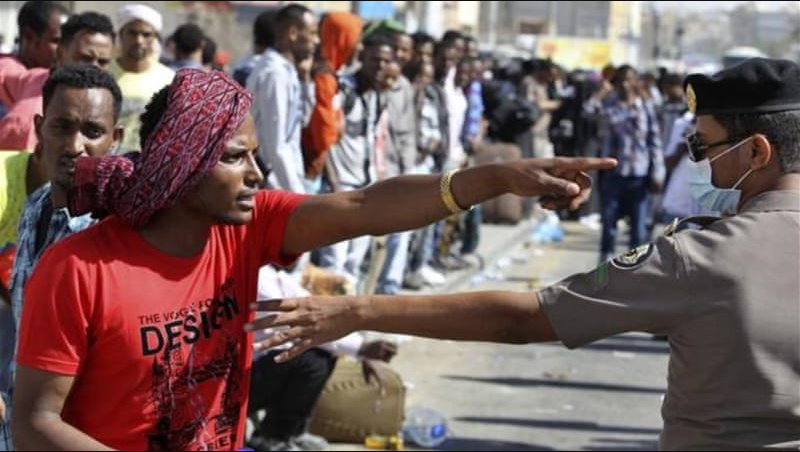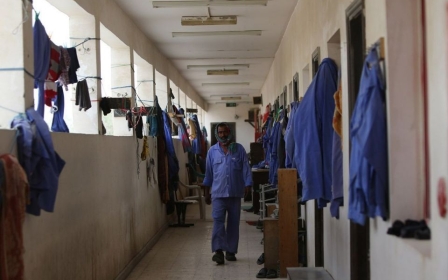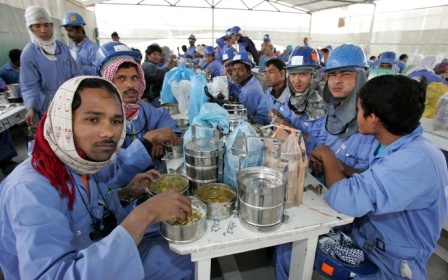Ethiopians at risk of arrest and torture if deported by Saudis, says HRW

Thousands of Ethiopian migrants are at risk of being imprisoned or killed if the Saudi government deports them back to Ethiopia, Human Rights Watch has warned.
The warning comes after thousands of Ethiopians failed to register their presence with the Saudi government, which has put them at risk of being deported.
Felix Horne, HRW's senior researcher for East Africa, told the Voice of America (VOA) that migrant workers had a legitimate concern over being imprisoned or tortured if returned back to Ethiopia.
“They say that they will be killed, arrested and tortured by the government they fled from," Horne told VOA's Horn of Africa Service.
"If you are an individual who is fleeing [a] repression system, scared to return to the country of origin, you would be entitled to international protection.”
Thousands of Ethiopians fled to Saudi Arabia in 2015 when bloody anti-government protests began in Ethiopia's Oromia region.
Riyadh imposed an August deadline for Ethiopian immigrants to register with the government in order to obtain work permits and "to better facilitate their cases".
Saudi Arabia had previously deported large numbers of Ethiopians in 2013. Horne claims a large number of them were arrested upon returning to Ethiopia.
"Some of them reported torture in detention," said Horne.
Ethiopians who spoke to VOA claimed that the deportations will take place after the Hajj season is completed in a week's time.
During Saudi’s 2013 expulsions, Human Rights Watch says more than 160,000 Ethiopians were returned. The rights group's report alleged various abuses in the deportation process, including xenophobic attacks, beatings in detention, and horrendous jail conditions.
The Ethiopian government denies it mistreats people who were deported back to Ethiopia and says it welcomes its citizens returning from abroad.
Communication minister Negeri Lencho said in March that the government was taking measures to prepare for another mass deportation.
“The government is working to protect the rights of its citizens while returning home and a national task force has also been established to effectively coordinate their safe return," he said.
In June, Ethiopia's national disaster and risk management agency allocated $58.2m to help reintegrate citizens sent home from Saudi Arabia.
But Horne blamed the current situation that Ethiopian migrants in Saudi have found themselves in on the Saudi government, which according to Horne has failed to implement a fully fledged asylum procedure leaving migrants in a state of limbo.
“We urge Saudis to put in place some sort of asylum system to understand all those migrants. Which ones should be entitled to international protection? Which ones are at risk of prosecution if they go back to Ethiopia? They should halt deportation until such time these are understood,” said Horne.
New MEE newsletter: Jerusalem Dispatch
Sign up to get the latest insights and analysis on Israel-Palestine, alongside Turkey Unpacked and other MEE newsletters
Middle East Eye delivers independent and unrivalled coverage and analysis of the Middle East, North Africa and beyond. To learn more about republishing this content and the associated fees, please fill out this form. More about MEE can be found here.




